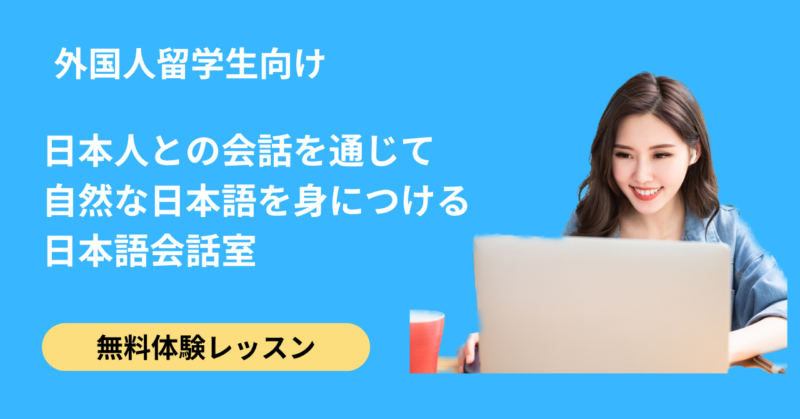- What Companies Look For in an Entry Sheet(ES)
- Questions that are Definitely Asked in the ES
- Frequently Asked Questions in the ES
- Frequently asked ES questions ①: Questions about personality
- Frequently Asked ES Questions② : Questions about post-employment activities
- Frequently Asked ES Questions③: Experiences during School Years
- Frequently Asked ES Questions ④: Questions about the industry and company
- Frequently Asked Questions in ES ⑤: Other Questions
- Points to keep in mind when writing the ES
What Companies Look For in an Entry Sheet(ES)

Please tell me what interviewers look for in an ES
The interviewer checks the ES to see what kind of person you are and whether you fit the profile that the company is looking for.
By reviewing the ES, the interviewer is deciding whether or not to call the student for an interview.
It is important to find out what kind of person the company is looking for before writing the ES.
Questions that are Definitely Asked in the ES

I would like to know what kind of questions to ask in the ES…

就活ナビ
First, we will introduce four questions that are definitely asked in the ES.
Since the questions introduced hereafter are the questions that will definitely be asked in the ES, please check how to write them and what you should pay attention to.
Question①: Self-Introductin
The first question that is definitely asked in an ES is self-introduction.
Companies ask self-introduction questions in order to easily ascertain “what kind of person” you are.
In the self-introduction, you will give basic information such as university, faculty, name, hometown, etc., as well as a brief description of your experience and willingness to join the company that can be connected to your personal PR.

就活ナビ
Some students write their strengths and skills in their self-introduction.
Self-introduction briefly introduces basic information about yourself. Self-PR, on the other hand, highlights your strengths and skills.
It is important to understand the difference between self-introduction and self-promotion.
Question②: Self-PR
The second question that is definitely asked in ES is self-PR.
Companies check “what strengths you have” through your self-PR.
Simply highlighting your strengths and skills in your self PR will not be appreciated.
When writing your self-PR, showcase your strengths and skills that can be utilized at the company you are applying for.
Question③: What did you focus on during your university life?
The third question that is definitely asked in an ES is “What did you focus on during your university life?
Companies ask the question “What did you focus on during your university life?” to confirm “how students approach things.
When writing What did you focus on during your university life, the most important thing is “how you did your best” rather than the results of your efforts.
Question④ : “Why are you applying for the job?
The fourth question that is definitely asked in an ES is the motivation for applying.
Motivation is a question that is asked not only in interviews but also in ES.
In order to hire people who are highly motivated to join a company, companies check students’ motivation through their motive for applying.
If you write “a motivation that can be said anywhere” in the ES, you will be dropped, so you need to think about “why should it be that company?
Frequently Asked Questions in the ES
We will now present five types of questions that are frequently asked in ES.
Frequently asked ES questions ①: Questions about personality
The first question often asked in ES is about personality.
Japanese companies place more importance on personality than skills and experience when hiring new graduates.
Therefore, in order to confirm what kind of person a student is, they ask questions about the student’s personality in the ES.
・あなたの短所を教えてください
・周りから「どんな人」と言われますか
・どんな時はストレスを感じますか
・あなたの性格を教えてください
・尊敬する人はいますか
・苦手なことは何ですか など
When writing an ES, do not appeal to the experience itself, but rather show your personality through the experience.
Frequently Asked ES Questions② : Questions about post-employment activities
The second question that is often asked in the ES is about your success after joining the company.
Any company does not just want to hire talented people; they want to hire people who will play an active role in their company.
Therefore, by asking questions about their post-employment activities in the ES, companies are confirming whether or not they will be able to play an active role after joining the company.
・当社を通して実現したいことを教えてください
・3年後のキャリアプランを教えてください
・10年後のキャリアプランを教えてください
・働く上で大事にしていることは何ですか
・当社で挑戦してみたいことを教えてください。
Companies want to hire people who will play an active role after joining the company.
When you are asked about what you would like to do after joining a company in your ES, be specific about how you would like to play an active role after joining a company so that the interviewer can visualize your success after you join a company.
Frequently Asked ES Questions③: Experiences during School Years
The third question commonly asked in the ES is about experiences during the student years.
By asking about your experiences as a student, companies are checking the values and ideas of students.
It is important to write about experiences that convey the values and ideas that you want to appeal to companies.
・周りを巻き込んだ経験を教えてください
・これまでの失敗経験を教えてください
・今までの成功経験を教えてください
・研究内容を教えてください
・学生時代に一番うれしかったことを教えてください
Companies are checking students’ ideas rather than experiences through the ES, so write about experiences that convey your personality.
Frequently Asked ES Questions ④: Questions about the industry and company
The fourth question commonly asked in ES is about industries and companies.
By asking questions about industries and companies in the ES, companies are checking whether you have researched the industry or company and whether you are highly interested in the company.
The following is a list of frequently asked job hunting questions in the ES.
・企業選び軸を教えてください
・当社のホームページを見た感想を教えてください
・当社に興味を持ったきっかけを教えてください
・当社の魅力を教えてください
・他にエントリーしている業界や企業を教えてください
By asking questions about industries and companies in the ES, we confirm that you have thoroughly researched the industries and companies.
Before answering questions about industries and companies, be sure to conduct thorough industry and company research.
Frequently Asked Questions in ES ⑤: Other Questions
Finally, here are some other questions.
When answering the other questions, write down the points that appeal to you.
・あなたの趣味を教えてください
・あなたの特技を教えてください
・海外滞在経験があれば記入してください
When answering the other questions, the most important thing is to write the points you want to emphasize through your answers.
Do not just write the answer to the question, but think about what you can appeal by answering the question.
Points to keep in mind when writing the ES
Point①: Do not deviate from the intent of the question.
The first point to keep in mind when writing an ES is to not deviate from the intent of the question.
When answering ES questions, it is important to confirm the intent of the question and write what the company wants to know.
If you write an answer in your ES that is not in line with the intent of the question, you will be dropped.
Therefore, when answering ES questions, check the intent of the question first.
Point②: Be aware of the type of person the company is looking for.
The third thing to keep in mind when writing an ES is to intend the type of person the company is looking for.
Through the ES, companies check to see if students are the kind of people they are looking for.
Therefore, you need to show that you are a good match for the company by answering the ES questions.
When answering ES questions, write what the company is looking for rather than what you want to write.
Point③: Do not lie when writing an ES.
The third thing to keep in mind when writing an ES is that you cannot lie.
If you write falsehoods in your ES, you will be exposed in depth during the interview.
If you write a lie in your ES, it will be discovered in the interview and you will be dropped.
Finally、to all international students, the most important factor when seeking employment in Japan is mastering the Japanese language. Smooth communication in Japan’s workplace environment and society relies on using the right words to express yourself effectively. Furthermore, having strong Japanese language skills provides advantages in various situations, from selecting job opportunities to interviews and actual job tasks. By enhancing your Japanese language proficiency, you can approach your work with confidence.
offers a solution to the language barrier faced by international students during job hunting by providing a free Japanese conversation room exclusively for foreign students. If you’re interested in learning Japanese, we encourage you to join us. Please feel free to participate!


